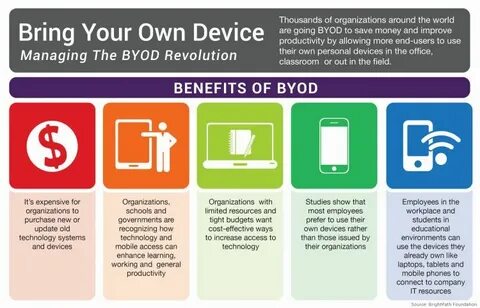Small businesses are the backbone of the economy, playing a crucial role in driving economic growth and creating job opportunities. Supporting small businesses is a vital component of economic growth, as they contribute significantly to overall economic development. In this article, we will explore the importance of small businesses in driving economic growth and the various ways in which they can be supported to thrive in today’s competitive marketplace.
Supporting small businesses is a vital component of economic growth as they play a significant role in job creation, innovation, and overall economic stability. Small businesses are often the breeding ground for new ideas and technologies, and they contribute to the diversification of local economies.
When small businesses are supported, they have the potential to thrive and expand, leading to increased productivity and competition in the market. This, in turn, can lead to lower prices for consumers and more choices in goods and services.
Moreover, small businesses often contribute to the unique character of local communities, attracting tourists and residents alike. By supporting small businesses, consumers can help preserve the distinctiveness of their neighborhoods and contribute to a more vibrant local economy.
Overall, small businesses are essential for a healthy and growing economy. By supporting them, individuals can contribute to job creation, economic diversity, and the overall well-being of their communities.
The Impact of Small Businesses on Local Communities

Small businesses play a crucial role in supporting local communities by creating job opportunities, driving economic growth, and contributing to the overall vibrancy of neighborhoods. They often provide unique products and services that add diversity and character to the area. Additionally, small businesses are more likely to reinvest their earnings back into the community, as compared to larger corporations, which can have a multiplier effect on the local economy. This reinvestment can take the form of hiring local residents, using local suppliers, and participating in community events and sponsorships. Furthermore, small businesses often foster a sense of community and connection among residents, as they are more likely to know their customers personally and tailor their offerings to meet local needs and preferences. Overall, the impact of small businesses on local communities is significant and wide-ranging, making them an essential pillar of economic and social development.
Strategies for Small Businesses to Thrive in a Competitive Market

Some strategies for small businesses to thrive in a competitive market include identifying a niche market and targeting it effectively, differentiating your business from competitors by offering unique products or services, providing excellent customer service to build loyalty and word-of-mouth referrals, investing in marketing and branding to increase visibility and attract new customers, staying agile and adaptable to respond to changing market trends, and fostering a strong company culture to attract and retain top talent. Additionally, networking and building strong connections with other businesses and industry professionals can also help small businesses thrive in a competitive market.
The Importance of Digital Marketing for Small Businesses

Digital marketing is crucial for small businesses as it provides them with the opportunity to reach a wider audience at a lower cost compared to traditional marketing methods. It allows small businesses to compete with larger competitors by leveling the playing field. Digital marketing offers a variety of tools and techniques, such as social media, email marketing, and search engine optimization, to help small businesses effectively promote their products or services. Additionally, digital marketing provides valuable insights and data that small businesses can use to better understand their target audience and improve their marketing strategies. Overall, digital marketing is an essential component of a small business’s success in the modern marketplace.
Challenges Faced by Small Businesses in Today’s Economy
See also: start your own company

Small businesses face numerous challenges in today’s economy. One major challenge is access to capital, as it can be difficult for small businesses to secure loans or investment funding. Additionally, rising operating costs, such as rent and labor, can put significant strain on small businesses. Competition from larger corporations and online retailers can also make it difficult for small businesses to attract and retain customers. In addition, navigating complex regulations and compliance requirements can be particularly challenging for small businesses with limited resources. Finally, the ongoing COVID-19 pandemic has created unprecedented challenges for small businesses, including disruptions to supply chains, shifts in consumer behavior, and financial uncertainty. Overall, these challenges can make it tough for small businesses to survive and thrive in today’s economy.
How Small Businesses Can Adapt to Changing Consumer Trends
Small businesses can adapt to changing consumer trends by staying informed about current market demands and preferences. This can be achieved by conducting regular market research and analyzing consumer behavior data to understand the evolving needs and preferences of the target audience.
Moreover, small businesses can also embrace a customer-centric approach by seeking feedback and suggestions from their customers through surveys and feedback forms. This can help them identify areas for improvement and tailor their products or services to better align with the changing consumer trends.
Additionally, utilizing social media and digital marketing strategies can also help small businesses stay relevant and adapt to changing consumer trends. Engaging with customers on platforms like Instagram, Facebook, and Twitter can provide valuable insights into current consumer interests and preferences.
Furthermore, fostering a culture of innovation and flexibility within the organization can help small businesses adapt to changing consumer trends. This may involve being open to experimenting with new products or services, and being willing to pivot and adjust business strategies based on market demands.
Overall, by staying informed, engaging with customers, utilizing digital marketing, and fostering a culture of innovation, small businesses can effectively adapt to changing consumer trends and remain competitive in the market.
The Role of Small Businesses in Supporting Sustainable Practices
Small businesses can play a crucial role in supporting sustainable practices by implementing environmentally-friendly initiatives in their operations. This can include utilizing sustainable materials, reducing waste, conserving energy, and supporting local communities. By adopting sustainable practices, small businesses can not only reduce their environmental impact but also attract environmentally conscious customers and gain a competitive edge in the market. Additionally, small businesses can partner with other organizations and government agencies to advocate for sustainable policies and practices in their communities. Overall, small businesses have the potential to make a significant contribution to sustainable development and help create a more environmentally friendly and socially responsible business environment.
Small Business Success Stories: Overcoming Adversity and Thriving
Small Business Success Stories: Overcoming Adversity and Thriving is a collection of real-life accounts of small businesses that have faced significant challenges and setbacks, yet managed to overcome them and achieve success. The stories featured in this collection showcase the resilience, creativity, and determination of small business owners and how they navigated through difficult times to ultimately thrive. These success stories serve as inspiration and motivation for other small business owners facing similar obstacles, offering valuable insights and practical advice on how to overcome adversity and build a successful enterprise.
The Economic Benefits of Supporting Small Businesses
Supporting small businesses can provide a range of economic benefits. Small businesses are often significant contributors to local economies, providing employment opportunities and boosting economic activity in their communities. They also contribute to innovation, competition, and market diversity, which can lead to increased productivity and economic growth. Additionally, supporting small businesses can help to redistribute wealth within a community, as profits are more likely to stay local and be reinvested in the area. Overall, supporting small businesses can result in a more vibrant and resilient economy.
The Resilience of Small Businesses in Times of Crisis
The resilience of small businesses in times of crisis is a topic that has garnered significant attention, particularly in the wake of global events such as the COVID-19 pandemic. Small businesses often face unique challenges during times of crisis, including limited resources, a lack of access to financial support, and a high degree of vulnerability to economic fluctuations. Despite these obstacles, many small businesses have demonstrated remarkable resilience, finding innovative ways to adapt to changing circumstances, leverage digital technologies, and pivot their business models to navigate through crises. Research has shown that elements such as a strong sense of community, a supportive network, and proactive leadership are crucial factors in determining the ability of small businesses to weather times of crisis. Additionally, government interventions and policies aimed at providing assistance and relief to small businesses have played a vital role in bolstering their resilience. Overall, the resilience of small businesses in times of crisis serves as a testament to the ingenuity, entrepreneurial spirit, and determination of small business owners and their ability to overcome adversity.
Empowering Women in Small Business Entrepreneurship
Empowering women in small business entrepreneurship involves providing them with the necessary resources, support, and opportunities to succeed in the business world. This may include access to business training, mentoring, financial assistance, networking opportunities, and fostering a supportive community. Encouraging and supporting women to start and grow their own businesses can lead to increased economic empowerment, job creation, and overall societal development. This can be achieved through various initiatives, policies, and programs aimed at addressing the unique challenges and barriers faced by women in the entrepreneurial space.
In conclusion, it is clear that supporting small businesses is a vital component of economic growth. By patronizing small businesses, we can contribute to job creation, innovation, and community development. Moreover, small businesses play a significant role in fostering competition and driving economic progress. Therefore, it is important for us to recognize the value of small businesses and continue to support them in order to ensure a thriving and diverse economy. Small businesses truly are the backbone of our economy and deserve our support.
See also
https://wuilt.com/blog/ar/%D8%A3%D9%83%D8%AB%D8%B1-%D9%85%D9%86-70-%D9%81%D9%83%D8%B1%D8%A9-%D9%85%D8%B4%D8%B1%D9%88%D8%B9-%D8%B1%D8%A7%D8%A8%D8%AD-%D9%85%D9%86-%D8%A7%D9%84%D8%A8%D9%8A%D8%AA-%D9%81%D9%8A-2024-%F0%9F%A4%91
https://www.nafzaa.com/2024/02/dusiness-project-ideas.html
https://invest.egyprojects.org/new-small-business-ideas
https://bakkah.com/ar/knowledge-center/%D9%85%D8%B4%D8%A7%D8%B1%D9%8A%D8%B9-%D8%A7%D9%84%D8%B3%D8%B9%D9%88%D8%AF%D9%8A%D8%A9



